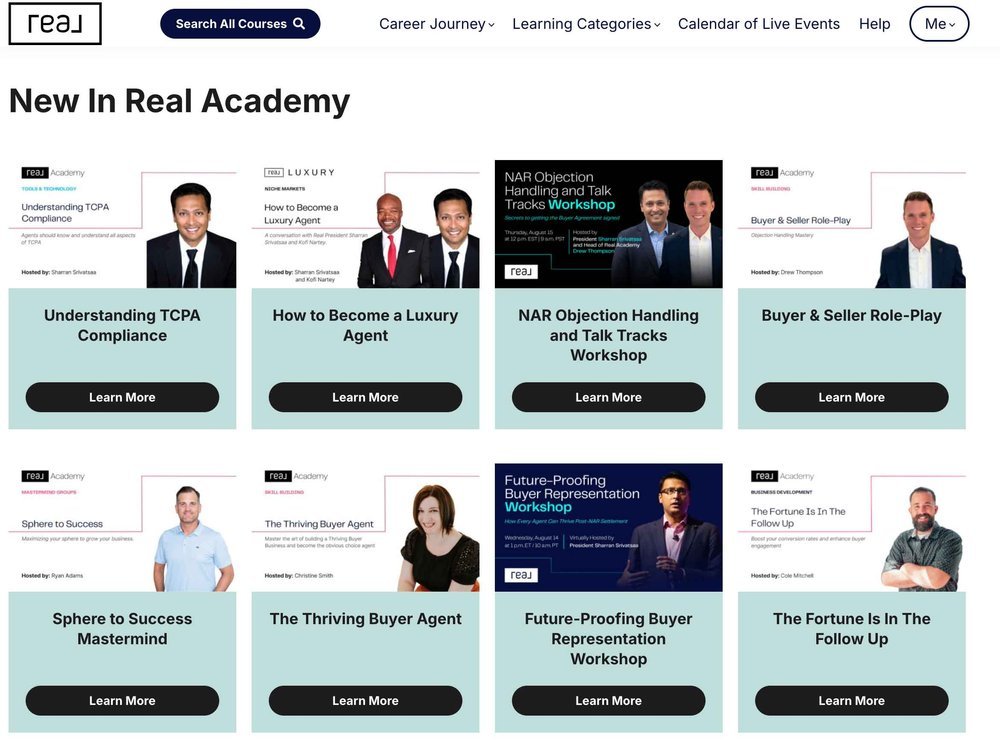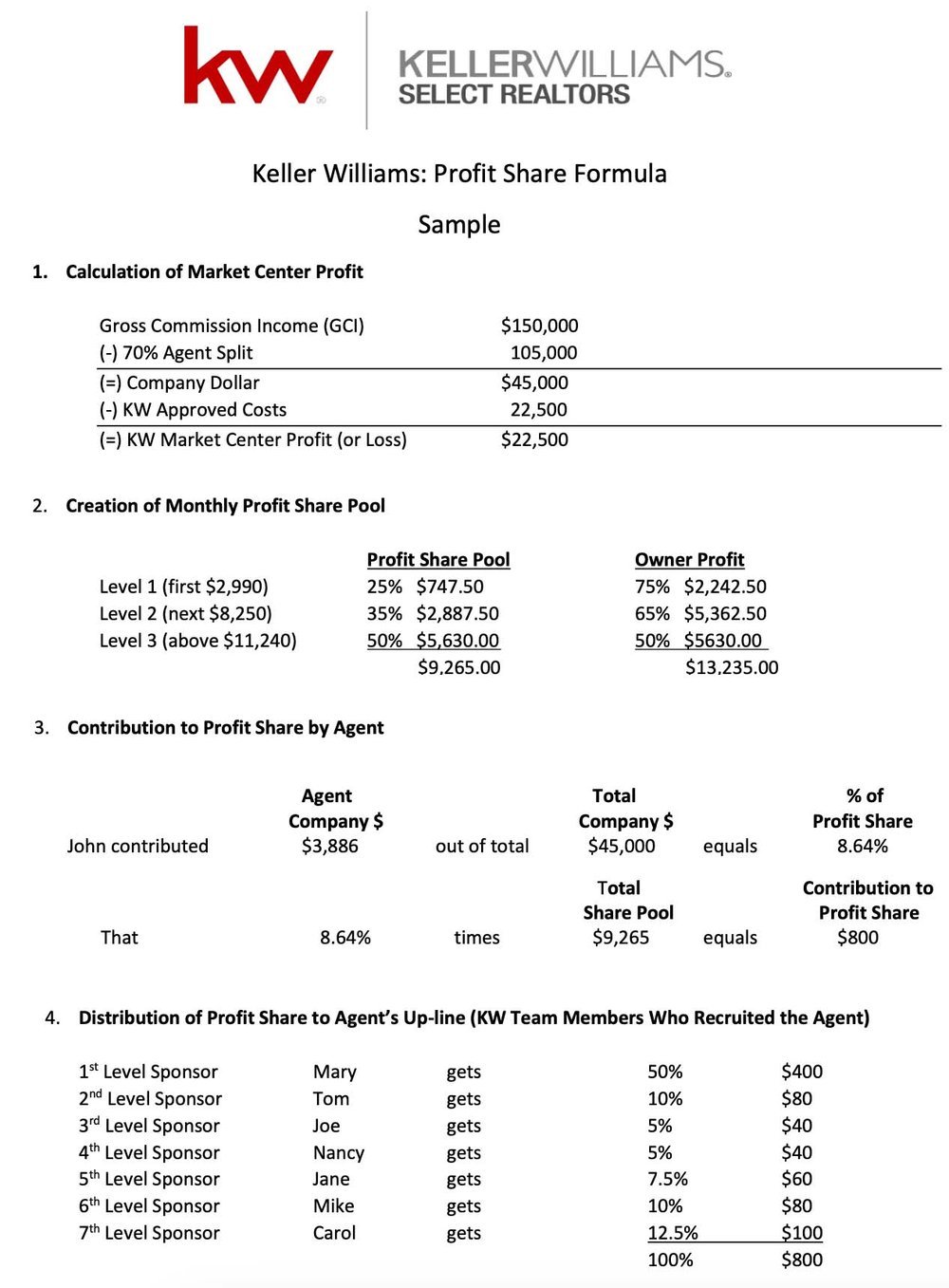REAL Broker vs. Keller Williams: An In-Depth Comparison
In the real estate world, choosing the right brokerage can make all the difference in your career and happiness. Two names that come up often are REAL Broker and Keller Williams. Both are big players in the industry but they support their agents and success differently.
REAL Broker was founded in 2014 and has quickly become known for its techy approach and agent ownership. Keller Williams was founded in 1983 and has been a real estate giant for a long time, known for its training programs and big franchise network.
As an agent, finding a brokerage that matches your values, goals and work style is key. In this post I will compare REAL Broker and Keller Williams, business model, costs and fees, stock programs, training, revenue/profit share programs and coaching. I hope to help you make an informed decision on which brokerage is best for you and your career.
You’re an agent looking to switch or new to the industry looking to get started, knowing the differences between these two big brokerages will help you make the right decision for you. Let’s get into the details.
Business Models
Founded in Austin, Texas, in 1983, Keller Williams (KW) was one of the pioneers of the real estate team model and the brokerage franchise model. With about 1,100 franchises across America, KW is the largest brokerage by agent count, peaking at almost 200,000 agents globally before dropping to around 160,000 by the end of 2023.
KW is privately owned, with Gary Keller as the largest shareholder. They also launched MAPS, their paid coaching and training division, which accounts for a significant portion of KW's income. KW's business model revolves around selling franchises to brokers and upselling coaching and training to agents.
REAL Broker
REAL Broker, established in 2014 in New York City by Tamir Poleg, operates differently. It's a publicly traded company largely owned by its agents. REAL is available in all 50 states, DC, and four provinces in Canada, boasting about 12,000 agents as of now. Unlike KW, REAL is a cloud brokerage without franchises. Each state has brokers who work for REAL, reviewing contracts and supporting agents locally.
REAL operates on thin profit margins but became profitable in Q2 2023, with zero debt. They also launched REAL Mortgage and REAL Title, both cloud-based, and plan to introduce REAL Wallet with debit and credit cards for agents in early 2024. These additional services provide extra income streams for REAL Broker.
Keller Williams Realty
KW has a 70/30 split with agents, plus a 6% KW Royalty fee on each transaction until you pay $3,000 annually. This means the effective split is 64/36 until the royalty cap is met. Franchise owners set individual caps, which can range from $24,000 to $28,000 annually. Additional fees can include desk fees, printer fees, transaction fees, monthly fees, and more. For example, I paid $500 monthly for an office and $389 per transaction.
REAL Broker
REAL's fees and caps are uniform across all states. They offer an 85/15 split with a $12,000 cap, a $750 annual fee deducted from the first three transactions, a $30 E&O insurance fee on all transactions, and a $285 transaction fee after you cap (reduced to $129 for Elite Agents).
KW VS REAL Stock Awards
Keller Williams
KW is privately owned, and agents do not receive stock awards.
REAL Broker
REAL Broker is a publicly traded company owned by its agents so agents can own equity in the company.
Here are 5 ways REAL Broker gives agents free stock:
Capping: Once you hit your cap REAL Broker gives you 150 shares.
Agent Attraction: When an agent names you as their sponsor REAL Broker gives you a share of their revenue and 75 shares of stock when that agent does their first transaction.
Stock Purchase Plan Bonuses: If you buy stock directly from your commission through the stock purchase plan REAL Broker will give you up to 20% bonus stock on top of your purchase for free.
Elite Agent Production Award: If you meet the production requirements to become an Elite Agent REAL Broker gives you $16,000 of free stock in the company.
Elite Agent Cultural Award: If you are an Elite Agent and participate in the REAL community or teach classes you can get the Cultural Award which gives you an additional $8,000 of free stock. Combined these awards can be up to $24,000 of stock.
These incentives not only provide financial benefits but also foster a sense of ownership and community among REAL Broker agents.
Training
Keller Williams
At Keller Williams most of the training is provided by agents in the market center. They provide training in exchange for their caps or fees being reduced by the market center. Much of this training is like the Ignite series based on Gary Keller’s book The Millionaire Real Estate Agent.
Keller Williams also has a platform with training videos many of which are public on YouTube. But most of the free training is done in person at the market center.
Brokers sometimes offer training themselves and occasionally lenders or title companies will come in to teach. Sometimes external speakers will come in but usually to sell a product or service or recruit agents to their team.
Note: Keller Williams does offer paid coaching and classes but these are not covered under the caps and fees agents pay.
REAL Broker
At REAL Broker, most of the training is provided by our top performing agents, known as REAL’s Elite Agents, who are located all over the United States and Canada. We have over 2,000 online classes in the REAL Academy and new content is being added all the time. These classes are exclusive to REAL and can’t be found anywhere else.
In addition to the huge library of on-demand classes, we have over 30 live streams a week. Agents can join these live sessions and participate in the discussion and learn from the experts. We also have over a dozen recurring masterminds where agents connect via video calls to brainstorm and share ideas on specific topics. For example, I host a monthly YouTube Mastermind and a weekly Agent Attraction Mastermind.
To encourage great training and knowledge sharing, REAL rewards its top agents with the Elite Agent Award which includes $24,000 a year in free stock. Even agents who don’t make Elite Agent status teach classes. These classes are driven by their ownership in the company, their revenue share and their commitment to the REAL community.
There are pros and cons to the training models of both Keller Williams and REAL Broker. At Keller Williams most training is done by agents in your market center. This can create a financial disincentive for agents to share their best strategies since you are their direct competitor in the same market. With REAL Broker training is done by agents across the country, so there is no competitive tension.
REAL Broker’s virtual training includes sessions led by agents from all over the US and Canada who own stock in the company and receive revenue share. This creates a more collaborative environment and ensures top agents are motivated to share their knowledge.
Plus REAL Broker’s training model offers more topics. If you want to learn about YouTube marketing, hosting client events or geographical farming but no one in your local Keller Williams office has that expertise you’re out of luck. At REAL Broker you have access to training from a diverse pool of agents across the entire company covering a wide range of topics.
The online classes at REAL Broker are another big plus. Being able to take classes on your mobile device means you can learn on the go whether you’re in your car or between appointments making the training more flexible and convenient.
KW Profit Share vs. REAL Rev Share
Keller Williams
Keller Williams was the first to come up with a system that rewards agents for growing the company. Their program is called “profit share” and agents earn a percentage of the profits of the market center where their sponsored agents work. But remember, profit share is not guaranteed, it’s based on the profitability of the market center.
Instead of a fixed commission for an agent, Keller Williams distributes a portion of the market center’s profits which can be huge. 25%, 35% or 50% of the profits. Your share is based on the overall profitability of the market center and the commission of the agents you sponsor.
Keller Williams’ profit share goes 7 tiers deep. So when you sponsor an agent, you earn profit share not only from their production but from any agents they sponsor and so on down 7 tiers. This encourages agents to build big networks as each new agent adds to your profit share.
REAL Broker
REAL Broker runs on a different business model where we put all our marketing budget into rewarding agents who bring in new agents through word of mouth referrals and individual recruitment. Instead of spending on traditional advertising or recruitment, we redirect those funds as revenue share to our agents.
When you bring in an agent to join REAL and they choose you as their sponsor, you earn 5% of their commission on every deal until they hit $12,000. Once they hit $12,000 you will have earned $4,000 and this earning potential continues every year they stay with the company.
The revenue share goes down 5 tiers using a simple 5-4-3-2-1 model. For example if one of your tier 1 agents brings in a new agent, that new agent falls into your tier 2 and you earn 4% of their commissions until they cap. The percentages decrease for each subsequent tier: 3% for tier 3, 2% for tier 4 and 1% for tier 5.
To unlock the tiers 2 to 5 you need to have a certain number of producing agents in your tier 1 to access the revenue share of each subsequent tier, this promotes a collaborative and growth oriented environment within the company.
One of the biggest problems with the Keller Williams profit share model is that even if you recruit a high producing agent you may not get a profit share if the market center is not profitable. This can be frustrating for agents who invest time and energy into recruiting.
Another is the reliance on the market center to report profits accurately. During my time at KW I heard stories of brokers manipulating the financials by adding unnecessary business expenses to reduce reported profits. For example, brokers would prepay several months of office rent to make themselves look unprofitable so they wouldn’t have to pay out profit share to agents.
REAL Broker’s revenue share model is more transparent and reliable. Agents get a share of every transaction their recruits close until they cap, and a simple 5 tier structure makes it easy to understand how revenue share works so agents can be more profitable.
KW vs. REAL Coaching
Keller Williams
KW has two types of coaching programs for agents. One is a “productivity coach” in many offices, great for newer agents. This is group coaching with some one on one time to help you set goals. No upfront cost but you have to sign an agreement to pay a percentage of your commission to the coach for a period of time after you finish productivity coaching. But many offices only have one productivity coach and smaller offices may not have one at all.
Also, Keller Williams owns MAPS Coaching which offers paid classes and one on one coaching sessions. MAPS Coaching serves clients beyond Keller Williams but most of their clients are KW agents. Typically this program costs around $1,000 for 4 thirty minute calls a month and their most popular class is BOLD which costs $800.
REAL Broker
REAL Broker doesn’t have paid coaching programs. Instead they have a Mentorship Program where any agent can apply to be a mentor. Approved mentors create profiles outlining their strengths, backgrounds and the fees they charge which is usually 25% to 50% of the mentee’s commission. Mentees pay this percentage for 3 transactions and then can choose to continue the mentorship.
This mentorship program provides an extra income stream for many agents and allows experienced agents to give back to the community.
KW’s coaching and training programs are a big part of their business model as they upsell agents on various coaching programs after they join. I found this to be a conflict of interest as I felt strong pressure from my market center leader and broker to take many classes. Even at the annual BOLD event I got phone calls begging me to sign up.
But I like that REAL Broker doesn’t upsell coaching programs. Their mentorship program adds value and creates extra income for agents who like to help newbies.
REAL vs. KW Final Thoughts
Both Keller Williams and REAL Broker talk about culture, technology and training. After my first 5 years at Keller Williams Realty I decided to move my business to REAL Broker.
For me the culture at REAL Broker resonates. It’s collaborative not competitive and innovative and technologically advanced which I value highly.
REAL’s technology has changed my life and streamlined many of my daily tasks. I use the agent app every day to manage my transactions and multiple income streams.
What’s Next?
If you want to learn more about REAL Broker and see if it’s a good fit for you I’d love to schedule a one on one video call with you.















